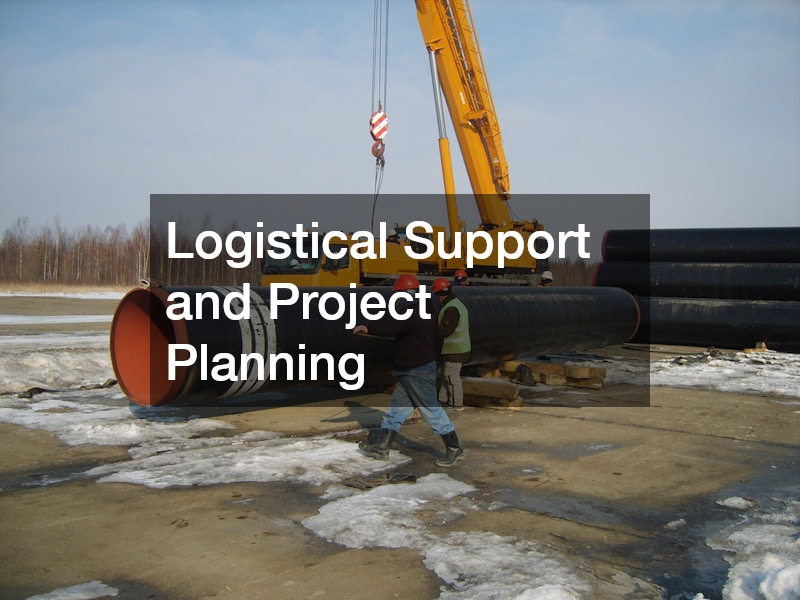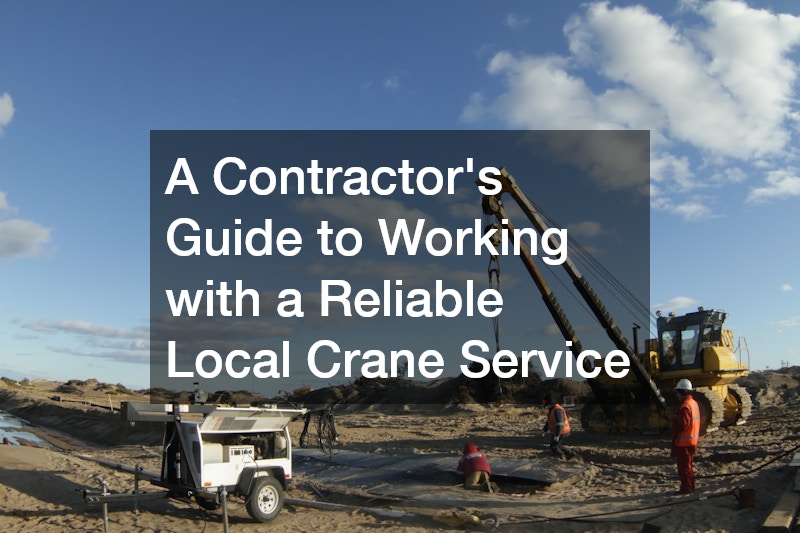
Understanding the importance of selecting a reliable crane service is crucial for contractors who require lifting solutions for their projects. This guide offers an in-depth look at how to work with local crane services, addressing common concerns and optimizing contractor-crane service relationships. As we explore the facets of crane service partnerships, contractors will gain valuable insights into seamless project execution and enhanced operational efficiency.
Evaluating Experience and Expertise
Evaluating a crane service provider’s experience and expertise is a fundamental step in choosing the right service. Contractors should prioritize providers with substantial years of industry experience and specialization in relevant projects. A service provider with a proven track record and skilled operators can significantly enhance the safety and efficiency of lifting operations.
An extensive portfolio of past projects can help gauge the provider’s proficiency in handling complex tasks. This also includes assessing their expertise in using different types of cranes, which is crucial for ensuring they can meet the specific needs of a project. Contractors can benefit from reliable crane services that demonstrate adaptability and technical competence.
Moreover, experience in the industry often correlates with an understanding of local regulatory requirements. Seasoned providers can navigate bureaucratic landscapes, ensuring timely project progression. A strong reputation often accompanies expert service providers, making them ideal partners for long-term project success.
Reviewing Safety Standards and Certifications
When selecting a local crane service, reviewing their adherence to safety standards and certifications is indispensable. Safety protocols not only protect the workforce but also ensure the integrity of the project timeline and budget. Providers that possess relevant safety certifications and endorsements offer a higher level of assurance in their operational processes.
Safety certifications such as OSHA compliance signify a provider’s commitment to maintaining stringent safety standards. Regularly updated certifications indicate a proactive approach to adopting the latest safety practices. Contractors should prioritize partnerships with providers who demonstrate a strong safety culture.
Furthermore, a company’s safety record can be a telling indicator of their operational efficiency and reliability. Acknowledged safety practices help prevent accidents and minimize project downtime. Partnering with a certified provider can lead to more effective risk management and contribute to overall project success.
Checking References and Reviews
Checking references and reviews is a practical approach to validating the reputation of a crane service provider. Declarations from past clients provide insight into the reliability and quality of services offered. A high volume of positive reviews and reputable references suggest a trustworthy provider.
Testimonials offer firsthand accounts of a provider’s performance, highlighting factors such as punctuality, professionalism, and problem-solving capabilities. Contacting previous clients directly can deepen the understanding of how the provider operates under various conditions. Contractors can use this feedback to anticipate potential challenges and solutions.
Equipment and Service Capabilities
Understanding the equipment and service capabilities of a crane provider is essential for meeting project requirements. Various types of cranes, such as mobile cranes, tower cranes, and telescopic cranes, are available for different lifting applications. A versatile provider with a diverse equipment portfolio can accommodate a range of project demands.
Additionally, the condition and maintenance of the equipment play a critical role in ensuring operational safety and efficiency. Contractors should expect the crane provider to offer regularly serviced and well-maintained machinery. Reliable equipment minimizes the risk of breakdowns and project delays, fostering a smoother project flow.
Logistical Support and Project Planning
Effective logistical support and project planning are fundamental services expected from a competent crane provider. An organized provider assists with site assessments, task scheduling, and logistical coordination, which are critical for project success. Such support ensures that resources are allocated properly, contributing to timely project completion.
Clever planning results in optimized crane usage, reducing downtime and excess costs associated with inefficient operations. Providers offering detailed execution plans demonstrate a comprehensive understanding of project dynamics. This approach aids in minimizing workflow disruptions, keeping the project on track.
Cost Estimations and Quotations
Accurate cost estimations and quotations form a crucial part of collaborating with a local crane service. A transparent quotation process helps contractors plan their budgets and understand the financial implications of crane services. It’s vital for both parties to account for factors like equipment type, project length, and additional service needs.
Detailed estimates with a breakdown of costs prevent misunderstandings and surprise fees during project execution. Contractors should expect clear communication regarding pricing models, whether hourly rates or fixed project costs. By understanding the financial components fully, contractors can evaluate the value propositions offered by potential providers.
Negotiating Contract Terms
Negotiating contract terms is an essential step in establishing mutual understanding and cooperation with your crane provider. Flextime, liability, and service modifications are key elements that should be discussed in contract negotiations. A well-drafted contract reflects a balance between contractor needs and provider services.
Partnering with a reliable local crane service can significantly impact the success of construction projects. By choosing the right provider, understanding their offerings, and establishing a strong working relationship, contractors can leverage crane services to achieve operational excellence and cost-effectiveness. This guide provides comprehensive insights into optimizing crane service partnerships, ensuring more predictable and successful project outcomes.


